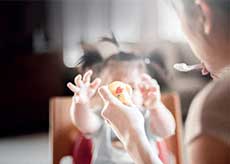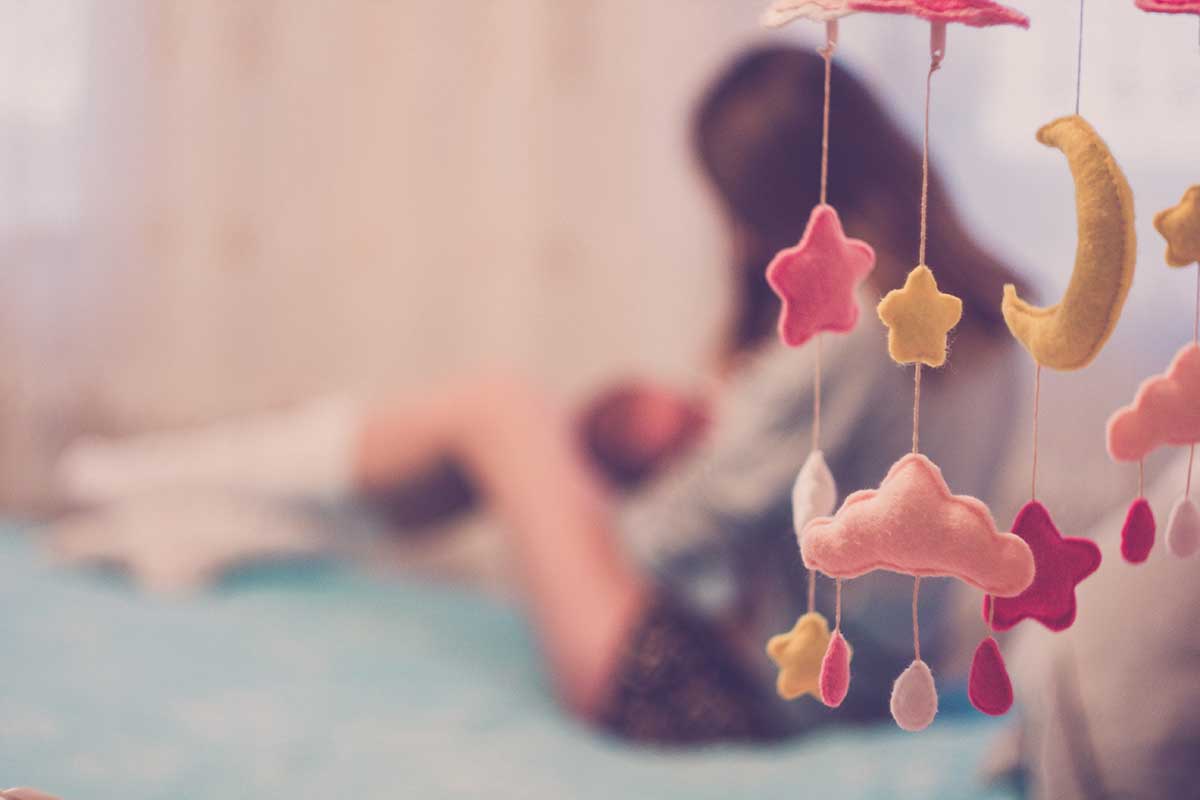Alcohol and the illusion of coping

Nadine Anne Hura’s personal reflection on her bitter-sweet relationship with alcohol is one many people can probably relate to. Here, she explains how alcohol slowly turned from being a source of strength and calm to a debilitating accuser. But it is also a story of great hope.
I never hit rock bottom. There wasn’t any great reckoning or moment of truth – just a series of low-bottoms and near misses culminating in the urge to just be done with it.
When I look back, I can see that almost all my early drinking habits were intricately linked to or woven around the routines of parenthood. Cooking dinner, bath time, story time. It was infinitely easier to negotiate sibling spats or to read The Enormous Crocodile one more time with a few glasses of wine on board. Thanks to alcohol, I was patient and kind and funny and loving. In that sweet, golden moment between tipsy and drunk, I was the mother I wanted to be.
It didn’t matter that sometimes I fell asleep on the beanbag before I managed to get the kids into bed or that I woke up every other morning with a splitting headache. I was a working mother raising three children. Exhaustion was normal. A drink or two in the evenings was my reward, a helping hand to transition from the stress of deadlines to the demands of domesticity. I could turn a stir fry in my high heels, reading out spelling lists as I went. With a chilled bottle of wine on the bench, everything was manageable.
In the early days, I could stop after the second glass, and I only drank a few nights of the week. I didn’t notice how gradual the slide was until I found I preferred to finish the whole bottle than to leave a tiny smidgen in the bottom to stare at me accusingly the next morning.
Mornings were spent reviewing everything I did or said the night before. Had I talked too much? Did I say something stupid? Why did I tell that stranger all those personal things?
Nadine HuraI’d binge at the weekends, but this didn’t ring any alarm bells. I’d conveniently filled my social circle with other mums who enjoyed a drink or two. We’d gravitated towards each other at kindy and school BBQs – sociable, funny and irreverent women who also happened to be mums. Our mutual appreciation for alcohol manifested in dry humour and witty one-liners that gave us permission to be our perfectly flawed selves. It was a sisterhood that kept a part of our former identities alive while simultaneously carrying each other through the trials of motherhood.
More than once, I wondered if I had a problem, but if I ever voiced these thoughts, my mates were quick to assure me I didn’t. I couldn’t possibly have a problem, because they didn’t have a problem.
But behind closed doors, I was struggling. It wasn’t just the headaches and the nausea. It was the voice in my head getting louder and more persistent as the years passed. I had become intensely self-critical. Mornings were spent reviewing everything I did or said the night before. Had I talked too much? Did I say something stupid? Why did I tell that stranger all those personal things?
On the one hand, alcohol was a salve. It relaxed me and made me feel better about myself. Parenting decisions seemed less daunting with the calming effects of alcohol. When there was strain in my relationship or I faced family dramas, alcohol helped me process things in a way that felt briefly reassuring – as if I was coping.
At the same time, alcohol was my accuser, magnifying – in the wee hours of the morning – all the worst parts of myself. It was like having a best friend who often treated me like shit. I knew my health was suffering, too – not just emotionally, but physically. My doctor had warned me I had the blood pressure of someone twice my age.
The illusion that I was coping didn’t so much shatter as lightly make itself known. I’d begun to conceal alcohol. I’d started scheduling my drinking so I started early and finished early to ensure I’d be sober to drive the kids to school in the morning.

A woman sits behind a baby's hanging mobile
Unable to sleep one night, I got up and went to my computer and spent hours trawling the internet. Around dawn, I stumbled upon the personal blogs of a group of American women sharing in their own words the very same struggles I was going through. As the sun came up, I lay my head on the keyboard and felt a weight come off me. I wasn’t alone.
The first time I quit, I was sober for 13 months. I remember that period as wonderful and surprising and not nearly as difficult as I thought it would be. The self-critical voice had softened and even become kind and encouraging. I took up knitting. I threw myself into learning te reo. The decision to start drinking again was to satisfy a curiosity. Could I be a moderate drinker? I desperately wanted to know. I longed to live without the stigma of identifying as ‘an alcoholic’.
It didn’t last long. The enjoyment had all but gone out of alcohol. When I wasn’t drinking, I was thinking about drinking. My brain was constantly in a state of negotiation. Could I have two glasses or three? In the end, I just got sick of it. I wanted to be doing other things with my life. I wanted to be writing or learning guitar or reading one of the books that lay for months on my beside table. I had also started to think seriously about the kinds of treasures I wanted to pass on to my children. My love of drinking wasn’t one of them.
In the nearly two years I’ve been completely alcohol-free, I’ve come to see that drinking is actually a pretty solitary exercise. We tell ourselves drinking is social, but beyond a couple of glasses, it’s really just about us. Often, it’s about our pain as much as our pleasure. Alcohol is a way of masking and self-medicating – a way of living with the ups and downs and stresses of everyday life and with the emotional baggage that can be too difficult to bear sober.
Nowadays, when I refuse a drink, people will often press me on my reasons. The simple answer is that it’s easier to have no alcohol at all than to resist the urge to have another. But really, why should anyone have to justify why they choose not to drink? It’s frustrating having to explain that there isn’t a label for my relationship with alcohol. I’m not an alcoholic, but alcohol isn’t good for me. It’s pretty simple, and there’s no guilt or shame associated with that. In fact, I can laugh about it. People will say, “Don’t you like a drink?” and I reply “Oh, trust me, I really do!”
Too often, the stigma of labels distorts our conversations and stop us talking about all the space that lies between ‘alcoholic’ and ‘sober’. I think this is particularly true for women, and mothers. We’re judged if we don’t drink and judged if we drink too much. Humorous greeting cards and memes that normalise unhealthy drinking habits are shared on social media as if alcohol is a benign influence in life. It’s always women, and often mothers. We’re depicted as people who ‘need’ alcohol to cope.
What I know is that alcohol didn’t help me cope at all. In fact, it concealed the fact that I wasn’t coping. When I drank, I didn’t do much else. Books I wanted to read piled up. Knitting projects gathered dust. Words I longed to write never left my head.
In the end, quitting wasn’t a grand event. I didn’t mark it on the calendar or tell anyone. I just emptied the last of the bottles down the sink and put them into the recycling. I was determined, in a quiet way, not to focus on what I was losing or giving up but on what I was gaining.
Now, when I wake up, no matter what other drama or stress is going on in my life, my head is clear and my stomach is settled. I never take that for granted. I marvel at the freshness of every new day, the energy in my step and the sharpness of my mind. It doesn’t mean my life is sorted, not by any stretch. But I’ve seen more sober sunrises now than I can count, and each one holds more meaning for me than any cocktail hour.
I’m not always a patient mother or as kind or funny as I would like to be, but I hear my kids and I see them. I can embrace them without guilt. I am not a perfect mother, but I am present. I am awake.
The thing is, alcohol can mask the pain, but it also masks the joy. Parenting is hard. Never will we be so vulnerable, so turned inside out or so busy. It’s a beautiful thing and even more mighty sober.
Recent news

Beyond the bottle: Paddy, Guyon, and Lotta on life after alcohol
Well-known NZers share what it's like to live without alcohol in a culture that celebrates it at every turn

Funding boost and significant shift needed for health-based approach to drugs
A new paper sets out the Drug Foundation's vision for a health-based approach to drug harm

Expert Pharmac committee recommends funding for overdose reversal nasal spray
The expert committee has said funding for naloxone in the community should be a high priority

